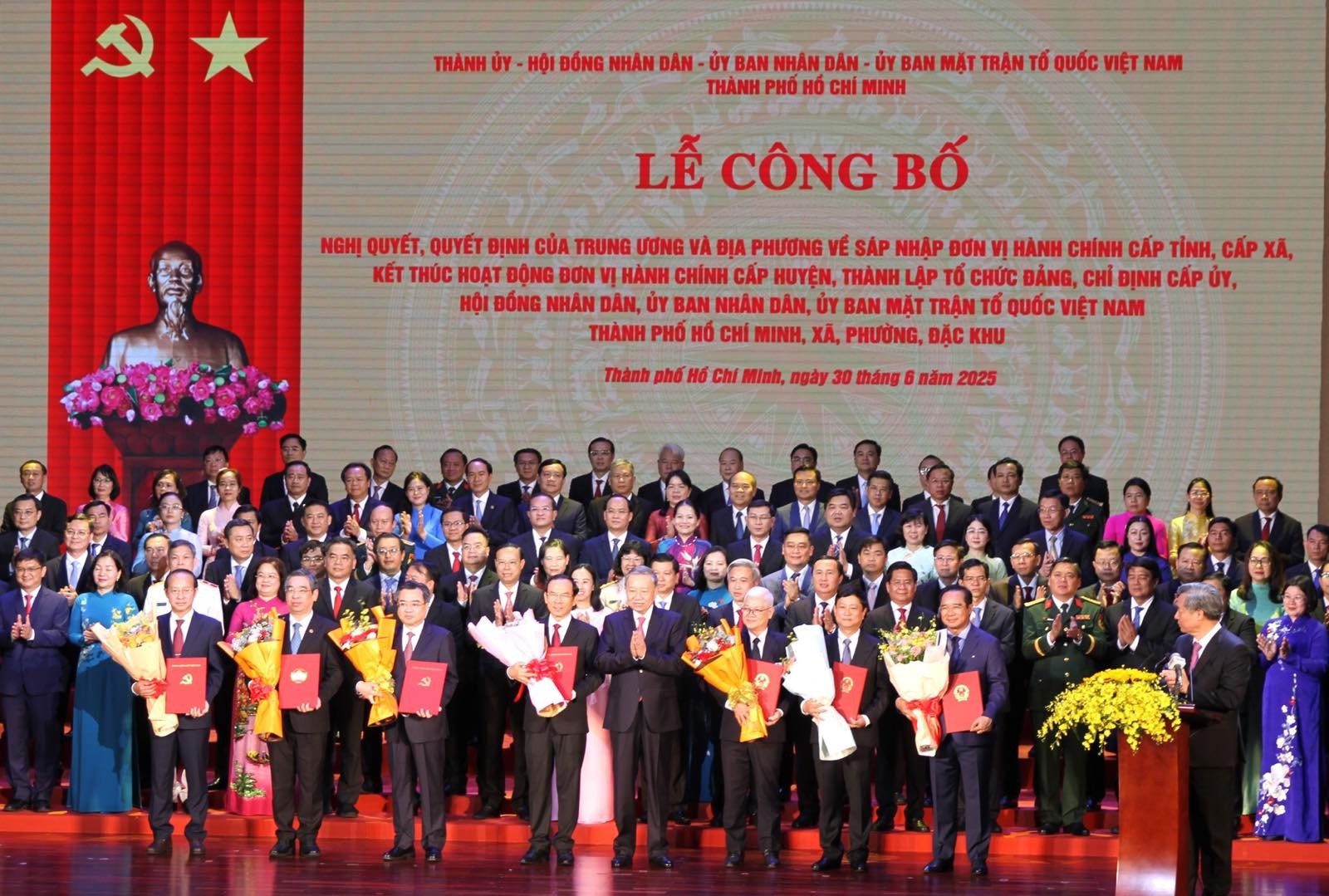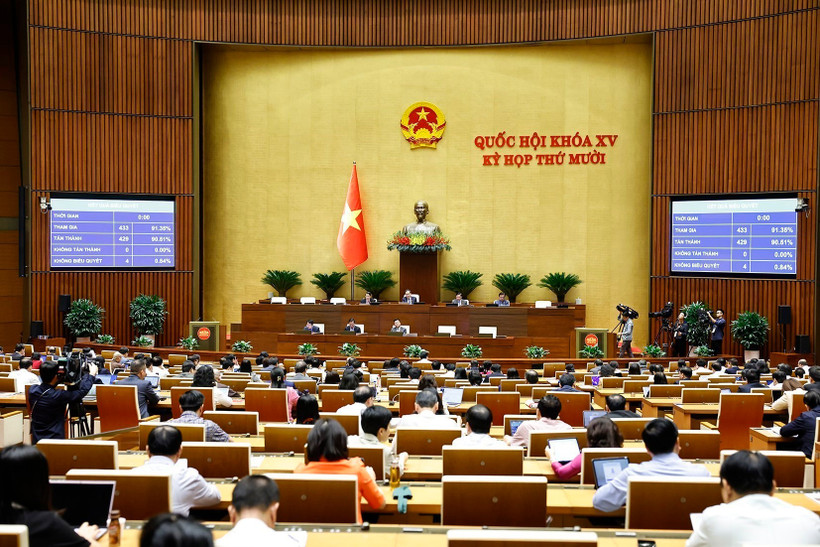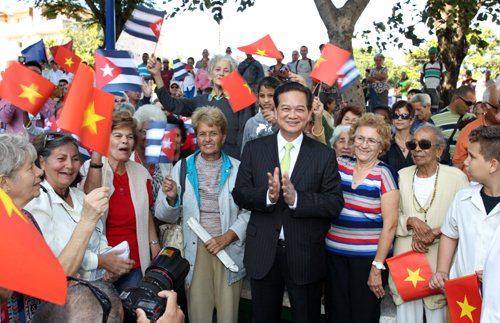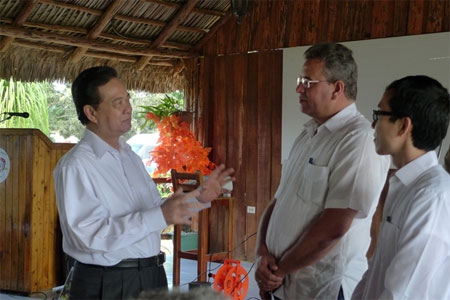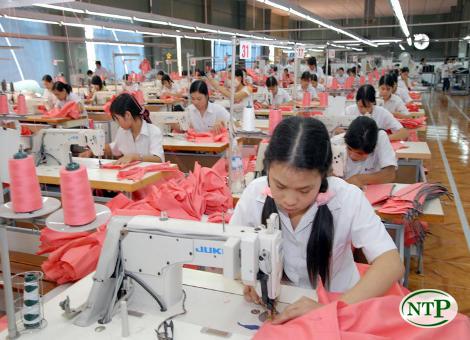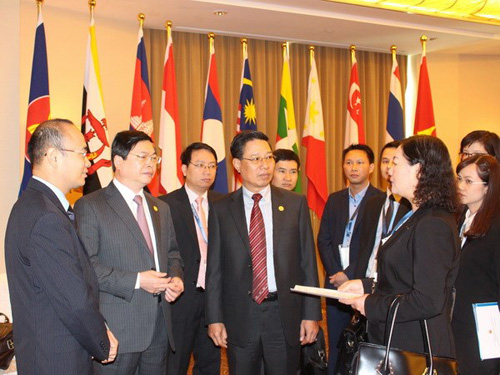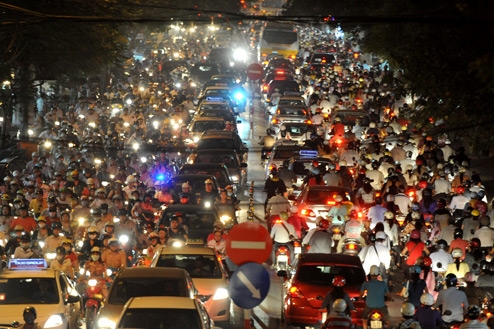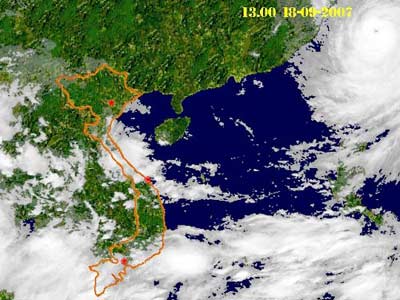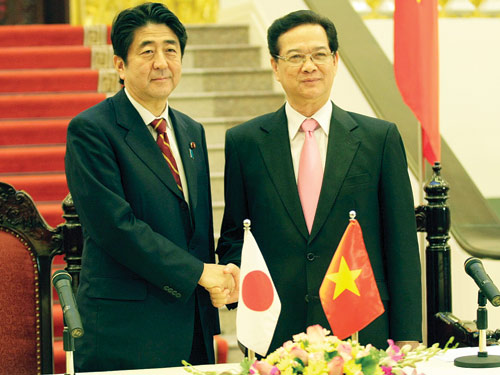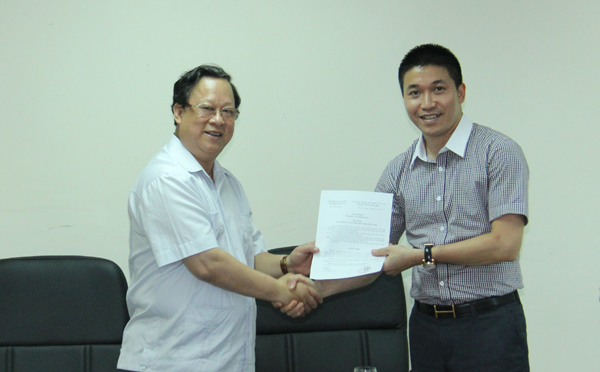I. THE COMMUNIST PARTY OF VIETNAM
(Website of the Communist Party of Vietnam: //www.cpv.org.vn)
Since its establishment, the Communist Party of Vietnam has organized and led the society to win all the victories of the Vietnamese nation. In 1945, the Party led the people to wage the successful August Revolution, putting an end to the yoke of French colonialism and setting up the Democratic Republic of Vietnam (now the Socialist Republic of Vietnam). After leading the 9-year anti-French war of resistance to victory, the Party seized the administrative control in half of Vietnam.
 From 1954 to 1975, the Party had led the country to carry out the construction of a new system in the North and the anti-US resistance war in the whole country, completely liberating the South in 1975 and reunifying the country in 1976. In 1986, the Communist Party of Vietnam initiated and led the renovation work and achieved a lot of great successes. After 10 years taking the country out of the economic and social crisis, embarking on the new stage of pushing ahead the national industrialization and modernization with a view to taking Vietnam to become an industrialized country in 2020.
From 1954 to 1975, the Party had led the country to carry out the construction of a new system in the North and the anti-US resistance war in the whole country, completely liberating the South in 1975 and reunifying the country in 1976. In 1986, the Communist Party of Vietnam initiated and led the renovation work and achieved a lot of great successes. After 10 years taking the country out of the economic and social crisis, embarking on the new stage of pushing ahead the national industrialization and modernization with a view to taking Vietnam to become an industrialized country in 2020.
II. THE STATE SYSTEM
1. The National Assembly
(Website of the National Assembly of Vietnam: //www.na.gov.vn)
The National Assembly is the supreme representative body of the people, the highest body of State power of the Socialist Republic of Vietnam.
The National Assembly are tasked to perform the constitutional, legislative and supervisory functions and make decisions on the fundamental policies on the internal and external affairs, on the economic and social, national defense and security tasks, the main principles of the State apparatus, on the social relations and the citizens’ activities.
The term of the National Assembly is five years with two sessions a year in its activities. If the Standing Committee of the National Assembly finds it necessary or as requested by the State President, the Prime Minister of by one third of the total deputies, the National Assembly shall convene its sudden session. The deputies of the National Assembly are the Vietnamese citizens with the age of 21 and older, with good quality, qualifications and abilities and are elected by the voters.
The National Assembly deputies are tasked to attend the National Assembly sessions, are entitled to submit the law project, the ordinance project to the National Assembly, the Standing Committee of the National Assembly, are entitled to question the State President, the Chairman of the National Assembly, the Prime Minister and the Governmental ministers, the Presiding Judge of the People’s Supreme Court and the Head of the Supreme People’s Procuracy.
The National Assembly deputies must have close contact with the voters and fall under the supervision of the voters.
The Chairman and the Vice-chairmen of the National Assembly are the deputies elected by the National Assembly at the first session of every tenure of the National Assembly. The Vice-chairmen of the National Assembly are the assistants of the Chairman in accordance with the distribution of work of the Chairman.
The Standing Committee of the National Assembly, the standing body between the two sessions of the National Assembly, has the right:
- supervise the implementation of the Constitution, the law and the resolution of the National Assembly; the ordinance and the resolution of the Standing Committee of the National Assembly; to supervise the activities of the Government, the Supreme Court and the Supreme Procuracy; to promulgate the ordinance, the explanations of the Constitution, the law and the ordinance.
Two councils of the National Assembly are: the Council of the National Defense-Security chaired by the State President; the Prime Minister is the Vice-Chairman and 4 members; the Council of Nationalities comprises a Chairman and 38 members.
The Functional Committee of the National Assembly comprises the Law Committee; the Committee of Economy and Budget; the National Defense-Security Committee; the Committee of Culture, Education of Youth, Adolescents and Children; the Committee of Social Issues; the Committee of Science, Technology and Environment and the Committee of External Relations.
2. The State President
- is the head of the State, elected by the deputies of the National Assembly on behalf of the Socialist Republic of Vietnam in the internal and external relations aspects.
The Constitution of the Socialist Republic of Vietnam clearly states that the State President has 12 rights and obligations, in which the most prominent rights and obligations are:
- To make public the Constitution, law and ordinance.
- To command the people’s armed forces and hold the post of Chairman of the Council of National Defense and Security.
- To propose the National Assembly to elect or remove from the post the Vice-President, the Prime Minister, the Chief Judge of the People’s Supreme Court, the Head of the Supreme Procuracy.
Assistants of the State President are the Vice-President, the Council of National Defense and Security and the Office of the State President.
The State Vice-President is proposed by the State President and elected by the deputies of the National Assembly; the State Vice-President helps the State President to carry out the tasks and possibly is delegated by the President to do certain tasks or to work as the acting President.
The Council of the National Defense and Security is tasked to mobilize all the forces and capabilities of the country to defend the Fatherland. The Council led by the State President comprises the State Vice-President and the members introduced by the State President and approved by the National Assembly.
3. The Government
The Government is the executive body of the National Assembly, the highest administrative body of the State of the Socialist Republic of Vietnam. The Government falls under the supervision of the National Assembly and is tasked to make reports to the National Assembly, the Standing Committee of the National Assembly and the State President. The Government comprises the Prime Minister, the Deputy Prime Ministers, the Ministers and Heads of the Ministerial level agencies. The Prime Minister is introduced by the State President, elected and removed from the post by the National Assembly with a five-year term.
The Deputy Prime Ministers are proposed by the Prime Minister and approved by the National Assembly. The Deputy Prime Ministers are the assistants of the Prime Minister and are delegated with the tasks when the Prime Minister is absent.
The Ministers and Heads of the Ministerial level agencies are proposed by the Prime Minister and approved by the National Assembly. They undertake the State managerial functions for the sectors and fields assigned to them.
4. The apparatus organization at the local level
The People’s Council:
- The People’s Council in provinces and cities under the Central Government.
- The People’s Council in districts.
- The People’s Council in cities under provinces, provincial capitals and district.
- The People’s Council in communes, wards and townships.
The People’s Committee:
- Provinces and corresponding levels: it comprises departments, committees and other agencies under the People’s Committee and the Office of the People’s Committee.
- Districts and corresponding levels: it comprises departments and boards and other agencies under the People’s Committee and the Office of the People’s Committee.
- Communes and corresponding levels: the departments and offices.
III. THE FATHERLAND FRONT OF VIETNAM
The Vietnam Fatherland Front and its member organizations are the political basis of the people’s administration. The Front promotes the tradition of the entire people’s solidarity, intensifies the political and spiritual unanimity of views among the people, participates in building and consolidating the people’s administration, to together with the State take care of and protect the legitimate interests of the people, encourage the people to exercise their rights to mastery, seriously implement the Constitution and the law, supervise the activities of the State agencies, the elected representatives and the State officials and employees.
The State creates conditions for the Vietnam Fatherland Front and the member organizations to operate effectively.
IV. TRADE UNIONS
The Trade Unions is a political and social organization of the working class and of the working people. It is to together with the State agencies, the economic and social organizations take care of and protect the interests of officials and employees and other laboring people; participate in managing the State and society, in examining and supervising of the State agencies and the economic organizations; educate officials, workers, employees and other laboring people to build and protect the Fatherland.
V. OTHER POLITICAL ORGANIZATIONS
Apart from the Vietnam Fatherland Front and the Vietnam Confederation of Trade Unions, there are also a number of other political and social organizations such as the Vietnam Women’s Association, the Youth Union, the War Veterans’ Association and the Vietnam Farmers’ Association and the associations of certain occupations and crafts. These organizations play an important role in the national liberation cause. In the renovation and industrialization and modernization, these social organizations have been making an important contribution to bringing the policies of the Party and the Government of Vietnam into life.
Since its establishment, the Communist Party of Vietnam has organized and led the society to win all the victories of the Vietnamese nation. In 1945, the Party led the people to wage the successful August Revolution, putting an end to the yoke of French colonialism and setting up the Democratic Republic of Vietnam (now the Socialist Republic of Vietnam). After leading the 9-year anti-French war of resistance to victory, the Party seized the administrative control in half of Vietnam.

Leaders of the Party, the State and the National Assembly pay tribute to President Ho Chi Minh in his mausoleum
II. THE STATE SYSTEM
1. The National Assembly
(Website of the National Assembly of Vietnam: //www.na.gov.vn)
The National Assembly is the supreme representative body of the people, the highest body of State power of the Socialist Republic of Vietnam.
The National Assembly are tasked to perform the constitutional, legislative and supervisory functions and make decisions on the fundamental policies on the internal and external affairs, on the economic and social, national defense and security tasks, the main principles of the State apparatus, on the social relations and the citizens’ activities.
The term of the National Assembly is five years with two sessions a year in its activities. If the Standing Committee of the National Assembly finds it necessary or as requested by the State President, the Prime Minister of by one third of the total deputies, the National Assembly shall convene its sudden session. The deputies of the National Assembly are the Vietnamese citizens with the age of 21 and older, with good quality, qualifications and abilities and are elected by the voters.
The National Assembly deputies are tasked to attend the National Assembly sessions, are entitled to submit the law project, the ordinance project to the National Assembly, the Standing Committee of the National Assembly, are entitled to question the State President, the Chairman of the National Assembly, the Prime Minister and the Governmental ministers, the Presiding Judge of the People’s Supreme Court and the Head of the Supreme People’s Procuracy.
The National Assembly deputies must have close contact with the voters and fall under the supervision of the voters.
The Chairman and the Vice-chairmen of the National Assembly are the deputies elected by the National Assembly at the first session of every tenure of the National Assembly. The Vice-chairmen of the National Assembly are the assistants of the Chairman in accordance with the distribution of work of the Chairman.
The Standing Committee of the National Assembly, the standing body between the two sessions of the National Assembly, has the right:
- supervise the implementation of the Constitution, the law and the resolution of the National Assembly; the ordinance and the resolution of the Standing Committee of the National Assembly; to supervise the activities of the Government, the Supreme Court and the Supreme Procuracy; to promulgate the ordinance, the explanations of the Constitution, the law and the ordinance.
Two councils of the National Assembly are: the Council of the National Defense-Security chaired by the State President; the Prime Minister is the Vice-Chairman and 4 members; the Council of Nationalities comprises a Chairman and 38 members.
The Functional Committee of the National Assembly comprises the Law Committee; the Committee of Economy and Budget; the National Defense-Security Committee; the Committee of Culture, Education of Youth, Adolescents and Children; the Committee of Social Issues; the Committee of Science, Technology and Environment and the Committee of External Relations.
2. The State President
- is the head of the State, elected by the deputies of the National Assembly on behalf of the Socialist Republic of Vietnam in the internal and external relations aspects.
The Constitution of the Socialist Republic of Vietnam clearly states that the State President has 12 rights and obligations, in which the most prominent rights and obligations are:
- To make public the Constitution, law and ordinance.
- To command the people’s armed forces and hold the post of Chairman of the Council of National Defense and Security.
- To propose the National Assembly to elect or remove from the post the Vice-President, the Prime Minister, the Chief Judge of the People’s Supreme Court, the Head of the Supreme Procuracy.
Assistants of the State President are the Vice-President, the Council of National Defense and Security and the Office of the State President.
The State Vice-President is proposed by the State President and elected by the deputies of the National Assembly; the State Vice-President helps the State President to carry out the tasks and possibly is delegated by the President to do certain tasks or to work as the acting President.
The Council of the National Defense and Security is tasked to mobilize all the forces and capabilities of the country to defend the Fatherland. The Council led by the State President comprises the State Vice-President and the members introduced by the State President and approved by the National Assembly.
3. The Government
The Government is the executive body of the National Assembly, the highest administrative body of the State of the Socialist Republic of Vietnam. The Government falls under the supervision of the National Assembly and is tasked to make reports to the National Assembly, the Standing Committee of the National Assembly and the State President. The Government comprises the Prime Minister, the Deputy Prime Ministers, the Ministers and Heads of the Ministerial level agencies. The Prime Minister is introduced by the State President, elected and removed from the post by the National Assembly with a five-year term.
The Deputy Prime Ministers are proposed by the Prime Minister and approved by the National Assembly. The Deputy Prime Ministers are the assistants of the Prime Minister and are delegated with the tasks when the Prime Minister is absent.
The Ministers and Heads of the Ministerial level agencies are proposed by the Prime Minister and approved by the National Assembly. They undertake the State managerial functions for the sectors and fields assigned to them.
4. The apparatus organization at the local level
The People’s Council:
- The People’s Council in provinces and cities under the Central Government.
- The People’s Council in districts.
- The People’s Council in cities under provinces, provincial capitals and district.
- The People’s Council in communes, wards and townships.
The People’s Committee:
- Provinces and corresponding levels: it comprises departments, committees and other agencies under the People’s Committee and the Office of the People’s Committee.
- Districts and corresponding levels: it comprises departments and boards and other agencies under the People’s Committee and the Office of the People’s Committee.
- Communes and corresponding levels: the departments and offices.
III. THE FATHERLAND FRONT OF VIETNAM
The Vietnam Fatherland Front and its member organizations are the political basis of the people’s administration. The Front promotes the tradition of the entire people’s solidarity, intensifies the political and spiritual unanimity of views among the people, participates in building and consolidating the people’s administration, to together with the State take care of and protect the legitimate interests of the people, encourage the people to exercise their rights to mastery, seriously implement the Constitution and the law, supervise the activities of the State agencies, the elected representatives and the State officials and employees.
The State creates conditions for the Vietnam Fatherland Front and the member organizations to operate effectively.
IV. TRADE UNIONS
The Trade Unions is a political and social organization of the working class and of the working people. It is to together with the State agencies, the economic and social organizations take care of and protect the interests of officials and employees and other laboring people; participate in managing the State and society, in examining and supervising of the State agencies and the economic organizations; educate officials, workers, employees and other laboring people to build and protect the Fatherland.
V. OTHER POLITICAL ORGANIZATIONS
Apart from the Vietnam Fatherland Front and the Vietnam Confederation of Trade Unions, there are also a number of other political and social organizations such as the Vietnam Women’s Association, the Youth Union, the War Veterans’ Association and the Vietnam Farmers’ Association and the associations of certain occupations and crafts. These organizations play an important role in the national liberation cause. In the renovation and industrialization and modernization, these social organizations have been making an important contribution to bringing the policies of the Party and the Government of Vietnam into life.

